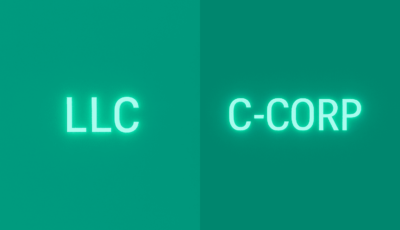Whether you are planning on founding a new company or launching a new product, there are some questions which you will think about: “What do we offer?”, ” Who is our target group?” and of course “How will our Company/Product be called?”. In this cooperative blog post with the naming and branding experts from GoBigname , we will summarize the most important points to think about when you choose a name for your company or product, considering both branding and legal aspects.
Naming from the brand perspective
A good brand name can fulfil many purposes for your company. Ideally, the brand name is the core of a well-crafted story that reflects the values of your company or product. It is an integral part and the cornerstone on which you build your reputation and differentiate yourself from your competition.
Historically, mankind has always given a name to new things. A name helps not only people but also companies to be recognizable and to express their individuality. Choosing a name for your business is a significant but not easy process. How many of you tried opening a bottle of beer and getting creative, only to realize how difficult it is without a creative process and objective evaluation criteria. The creative process of naming experts itself would fill pages so therefore we focus on the objective criteria.
Differentiator: Write down the names of existing companies in your industry or closely associated industries. Evaluate their keywords and focus only on words which differ from your direct competition both visually and spoken.
Communication potential: Don’t have just a name, create a story for your stakeholders. A good story behind your company’s name is also an icebreaker during pitches or presentations.
Flexible: Count that your business will grow. If your offer expands over time and you also sell other products or services, your name should not be restrictive. Therefore, we often recommend using an evocative rather than a descriptive name.
Easy to pronounce and read: Don’t forget that your company name is one of the first things you say when presenting your company on the stage or on the telephone. Check your name by writing out the name(s) of your business and ask people to pronounce it (include at least native speakers from your target markets). Additional, say the name and ask people how they would spell it.
Culturally appropriate: From nationalization to globalization. Early brands in the 19th century chose names for local use to protect their market share within a specific country. Today business is done on a global scale and goods are traded internationally. This has an immense influence on the choice of a name, as it should not be associated with negative things in other languages and cultures.
Registrable: The financial aspect of registering your intangible goods such as patents, trademarks, and copyrights should not be neglected. A study conducted in 2019 (1) surveyed 2818 Chief Marketing Officers and attempted to look at brand equity using the ISO standard. It was found that brand equity contributes an average of 19.5% to the overall enterprise value. For consumer and luxury brands, this value can increase to more than 50%. The criteria that need to be fulfilled in order to register a brand are further described below.
Before choosing the best name for your company, consider and answer the 12 questions GoBigname summarized in their previous post.
Successful brands will need protection
If you are striving to build up a successful brand name, you will likely attract imitators and copycats who want to profit from your brand’s reputation. It is therefore very recommendable to have brand protection mechanisms in place, and one of the easiest and most effective brand protection mechanisms is the registration of a trademark. In a nutshell, a trademark is a registered brand, giving you exclusive rights to the use of the brand. Check out our previous posts to learn more on why to register your brand as a trademark and why not to register your brand as a trademark.
It pays off to think about trademark registration already when you’re developing your brand name since there are multiple restrictions for the registration of a trademark:
- Distinctiveness: Trademarks serve as identifiers for certain products or services and have to distinguish that product/service from those of other companies. Distinctiveness is always assessed considering the goods/services the trademark is registered for and the relevant public’s perception of that trademark.
It is mainly important, that a trademark as a whole is not descriptive for the good/service you are searching protection for – “Apple” can therefore be registered for smartphones, but not for apple juice. Likewise, the trademark should not be perceived by the relevant public as only providing information on the nature of the concerned goods/services. You cannot register “SUPERFAST” for cars or ” Expert know-how. Fast delivery. Transparent pricing.” for legal services (otherwise, we would have done that).
- Not contrary to morality or public order: While this criterion is somewhat vague, it might be applicable if you would try to register obscene or offensive brand names, such as “Mohammed” for alcoholic beverages or any marks containing the element “fuck“.
- Not misleading: Deceptive signs which raise false expectations in consumers regarding the characteristics of your goods/services cannot be registered as a trademark. You can’t register marks with the element “bio” for synthetical products.
- Not confusingly similar to older third-party rights: If your new trademark is identical or too similar to an older trademark, the owner of the older trademark can oppose your registration based on the likelihood of confusion. This is one of the most common reasons for the denial of trademark registration. It pays off to let an expert check whether there are any older, too similar trademarks to your new brand, ideally before you even start using the brand.
Balancing legal and business in branding
So how do you find the right name? Fortunately, the legal restrictions oftentimes correspond with the business imperatives: Having an as distinctive and unique as possible brand name is not only good for its registrability but also makes your brand stand out. The same applies to the requirement that your brand is not offensive or misleading. While from a short-term business perspective, a shocking brand might be interesting, it is certainly not beneficial for sustainable business success.
Where the business and the legal interests might interfere is the descriptiveness. A descriptive name might make sense, especially in the early days and with a low marketing budget, so consumers can easily identify what goods/services your brand offers. But it is highly likely that your brand would not be registered if the whole trademark is descriptive, and you might lack in differentiation.
One easy workaround is to register your trademark with both descriptive and non-descriptive parts. The non-descriptive part could be a graphical or a word element, so you can also combine your descriptive wordmark with your non-descriptive logo or vice versa. You may include a component of a personal name based on ancestors or founders (so-called patronymic names, e.g. “Ford Motor Company”). This lets you relate to the history of a company, but your brand will be tied to that personal name and might suffer from the negative press of the family behind the name (think of “The Weinstein Company”).
Similar to patronymic names are toponymic ones, such as “Credit Suisse”. They provide an association to geographical origins of a company and can be evocative e.g. make use of myths, history, or symbols. They can be challenging to pronounce and might have limited international potential. Also, you’ll have to be careful from a legal perspective: If you produce cars in China, you cannot name your company Swiss Cars GmbH.
The safest way to avoid descriptiveness is to simply invent a new word (neologism). You can derive neologisms from an existing word by adding letters at the beginning or the end, perhaps change some letters in a word, e.g. as in “Spotify” or “Tropicana”. Or you invent an abstract new word, such as “Xerox” or “Lexus”.Invented words without obvious meaning are effective and can be extremely evocative if a context is given. As any new word, they seem to be strange or unnatural at the beginning. But once established, neologisms are unique and will differentiate you from your competition.

If you are interested to get further insights into the different name types, you can visit GoBigname’s blogpost.
Additional points to consider for branding
Of course, there are other points you should consider. You have to ensure that your name is not already registered in the commercial registry. You also will want to use your brand as a domain for your website. It is therefore key to choose a brand that is both available and affordable as a domain name, ideally as a .com. Choosing a commonly used generic word is often a mistake too, even if it’s not descriptive for your product. For example, you will not be able to monitor social media mentions and quickly react to either positive or negative customer feedback.
Choosing the right name can be a very difficult task and might seem to some as a thing they do not want to spend too much time and resources on. Just keep in mind that there is nothing that you will use more frequently as your company name, so getting professional assistance here is rarely a bad investment.
Sources:
(1) https://blogs.forbes.com/forbesinsights/files/2019/06/Proving-the-Value-of-the-Brand-Report-6.20.19.pdf












